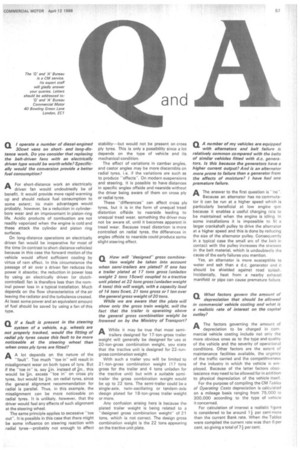Q A number of my vehicles are equipped with alternators and
Page 59

If you've noticed an error in this article please click here to report it so we can fix it.
belt failure is relatively common compared with the belts of similar vehicles fitted with d.c. generators. Is this because the generators have a higher current output? And is an alternator more prone to failure than a generator from the effects of moisture? I have had one premature failure.
AThe answer to the first question is "no"
Because an alternator has no commutator it can be run at a higher speed which is particularly beneficial at low engine rpm because it enables a useful charging rate to be maintained when the engine is idling. In some installations it is impossible to fit a larger crankshaft pulley to drive the alternator at a higher speed and this is done by reducing the size of the alternator pulley. Consequently in a typical case the small arc of the belt in contact with the pulley increases the stresses in the belt material, which is undoubtedly the cause of the early failures you mention.
Yes, an alternator is more susceptible to water and salt than a d.c, generator and it should be shielded against road splash Incidentally, heat from a nearby exhaust manifold or pipe can cause premature failure.




































































































